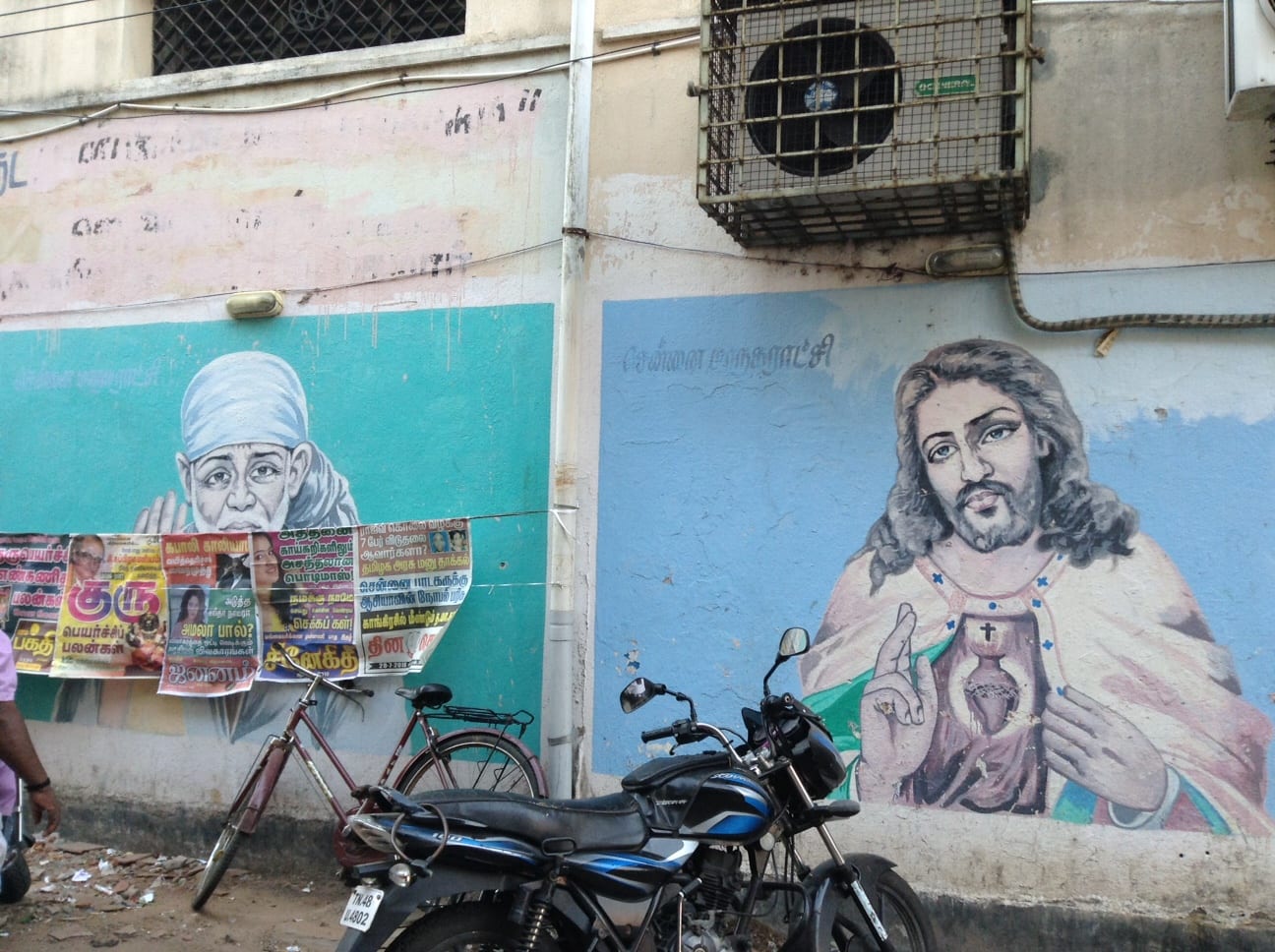During our short stay in Tiruvannamalai, we’ve seen many things: we visited an ashram and a Shiva temple, we climbed the Arunachala mountain (believed to be Shiva, the god of creation and dissolution), and we’ve seen monkeys, traditional Dalit dances, women making beautiful handloom crafts, and exciting new flavors of ice cream.
We’ve also seen many more Westerners, both young and old, than anywhere else we’ve been in India so far. It’s been a kind of reverse culture shock; we are not stared at nearly as much, nor do strangers approach us to take selfies. And yet, when we first arrived, there was something even more uncomfortable about so many foreigners like us being present, but I struggled to put my finger on exactly what caused this feeling. As I learned more about this place through direct experiences and an enlightening talk, however, I have begun to realize why I felt so uncomfortable.
Tiruvannamalai is a significant location for spiritual seekers, both Indian and Western, Hindu and otherwise. The mountain, which we could see from the rooftop of Quo Vadis (a small haven for people of any faith to come together for dialogue) is believed to be the god Shiva. People from across the globe are attracted to it, and they seek spiritual enlightenment or simply want to experience God.
While at Quo Vadis, we heard from Kumera, a former Christian preacher who deeply identified with the Hindu tradition. Kumera used the mountain as a metaphor for understanding the relationship between different religions. He said that we are all spiritual seekers, climbing up the same mountain to reach God. However, there’s a catch— because we are all on different paths going up opposite sides of the mountain, we think that we are on completely different mountains altogether. We see different landmarks that don’t look anything like the others’ landmarks. But as we near the top of the mountain, the paths start to converge, and the landscape seen by the travelers on the different paths begins to look the same. The message of this metaphor, in my view, is that people are too entrenched in their own religious traditions that they can’t (or refuse to) see that we are all climbing towards the same ultimate reality. At the end of the journey, if completed successfully, we will all meet at the top. ‘Successful’ completion is also unique for each religion— different paths have different obstacles and different tools to overcome those obstacles; no two journeys look the same.
I thought about this story at 6:30am as we climbed up the Shiva mountain to meditate. We didn’t go all the way up, but we did see the base of the mountain and some of the scenery as we climbed. We stopped at a rock outcropping, where our guide led us in meditation, and we got frightened by a wild pig while trying to balance our bodies in uncomfortable yoga poses. I thought this was symbolic of our time in India: we’ve gotten a taste of religions in India (the base of the mountain) and have had some amazing first hand experiences in multiple sacred places (a short but strenuous climb). We’ve also felt out of place and a little frightened by the unfamiliar (cue yoga and the wild boar). However, I would be lying if I said I had a strong grasp of the whole picture of how all the pieces fit together— I have yet to see the view from the top of the mountain.
One thing that I will take away from my time here is that, if I believe in an infinite God, who am I to say that there is only one path to Him and only one manifestation of Him? Who am I to judge who has the ‘right’ vision of God? I think the reason that I was uncomfortable with the many foreigners here is because they seemed to be comfortable thinking of Hinduism/Hindu practices as their own. Since I did not feel this way, I felt slightly ill at ease with that notion. But during our short stay here, I have become more comfortable with being uncomfortable. I will always feel most at home with what I grew up with, but I also find myself attracted to the Hindu mindset which is a great driving force behind the interfaith relations we have experienced here. I have more to ponder, but in the meantime, I will be enjoying my last week in India and learning as much as I can.
